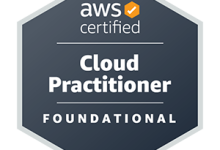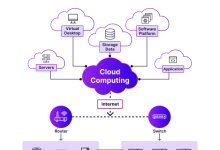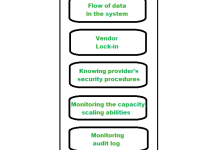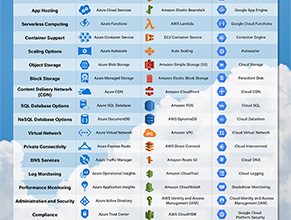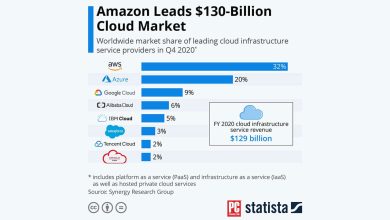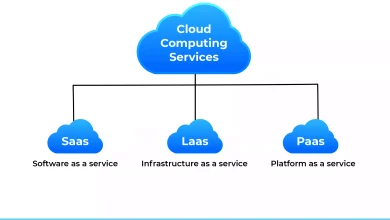cloud computing products
Ads
The Power of Cloud Computing Products
Cloud computing products have changed the way businesses operate in today’s digital age. This innovative technology allows organizations to store, manage, and access data and applications over the internet, rather than on local servers or personal computers. The flexibility and scalability of cloud computing products have made them an essential tool for businesses of all sizes, from startups to multinational corporations.
One of the key advantages of cloud computing products is their ability to provide cost-effective solutions for businesses. By shifting from traditional on-premises systems to cloud-based services, companies can reduce their IT infrastructure costs and pay only for the resources they use. This scalability allows businesses to quickly adapt to changing market conditions, without the need for large upfront investments in hardware and software.
Another strength of cloud computing products is their accessibility and ease of use. Employees can access data and applications from anywhere in the world, as long as they have an internet connection. This flexibility enables remote work and collaboration among team members, leading to increased productivity and efficiency.
Furthermore, cloud computing products offer enhanced security features to protect sensitive data and prevent cyber attacks. Cloud service providers invest heavily in advanced security measures, such as encryption, firewalls, and multi-factor authentication, to ensure that customer data remains safe and secure at all times.
Cloud computing products also provide a high level of reliability and uptime, as data is stored in multiple servers across different locations. This redundancy minimizes the risk of data loss and downtime, ensuring that businesses can continue to operate smoothly, even in the event of hardware failures or natural disasters.
Overall, the power of cloud computing products lies in their ability to streamline business operations, improve collaboration, and enhance data security, all while reducing costs and increasing scalability.
Weaknesses of Cloud Computing Products: Challenges to Consider
While there are numerous strengths of cloud computing products, it is essential to also consider their weaknesses and challenges. Understanding these limitations can help businesses make informed decisions when implementing cloud services and ensure that they are prepared to address potential issues.
One of the primary weaknesses of cloud computing products is the risk of data breaches and cybersecurity threats. Despite the advanced security measures that cloud service providers implement, no system is entirely immune to hacking attempts or malicious attacks. Businesses must be vigilant in monitoring their data, implementing robust security protocols, and engaging in regular security audits to protect against potential threats.
Another challenge of cloud computing products is the potential for service disruptions and downtime. While cloud service providers strive to offer high levels of uptime and reliability, the reality is that no system is infallible. Businesses must have contingency plans in place to minimize the impact of service disruptions and ensure that critical operations can continue uninterrupted.
Furthermore, the dependence on internet connectivity is a significant weakness of cloud computing products. If a business experiences internet outages or slow connection speeds, employees may be unable to access essential data and applications stored in the cloud. This reliance on internet access can pose challenges for businesses operating in remote or poorly connected areas.
Another weakness of cloud computing products is the potential for vendor lock-in. When businesses rely on a single cloud service provider for all their computing needs, they may find it challenging to switch to a different provider in the future. This can limit flexibility and hinder the ability to adopt new technologies or negotiate better pricing terms.
Lack of control over data and compliance requirements is another weakness of cloud computing products. Businesses must carefully consider where their data is stored, how it is managed, and whether the provider complies with relevant regulations and industry standards. Failure to meet these requirements can result in significant penalties and reputational damage.
Scalability and performance limitations are also areas of weakness for cloud computing products. While cloud services offer flexibility and the ability to rapidly scale resources up or down, businesses may encounter performance issues during peak usage times or when operating complex workloads. It is essential to conduct thorough performance testing and optimization to ensure that cloud services can meet the demands of the business successfully.
Finally, the cost of cloud computing products can be a significant weakness for some businesses, particularly those with unpredictable usage patterns or tight budget constraints. While cloud services offer a pay-as-you-go pricing model, with no upfront costs or long-term commitments, the cumulative expenses over time can add up, especially for resource-intensive workloads.
Table of Cloud Computing Products
| Product | Description | Features | Pricing |
|---|---|---|---|
| 1. Software as a Service (SaaS) | Provides software applications via the internet | Scalability, accessibility, automatic updates | Subscription-based pricing |
| 2. Infrastructure as a Service (IaaS) | Offers virtualized computing resources over the internet | Flexibility, scalability, self-service provisioning | Pay-as-you-go pricing |
| 3. Platform as a Service (PaaS) | Provides platforms for developers to build, test, and deploy applications | Developer tools, scalability, support for multiple languages | Usage-based pricing |
FAQs about Cloud Computing Products
1. What are the key benefits of using cloud computing products?
Cloud computing products offer numerous benefits, including cost savings, flexibility, scalability, enhanced security, and improved collaboration.
2. How can businesses address the security challenges of cloud computing products?
Businesses can address security challenges by implementing robust security protocols, conducting regular security audits, and training employees on cybersecurity best practices.
3. What factors should businesses consider when choosing a cloud service provider?
Businesses should consider factors such as data security, compliance requirements, service uptime, scalability, pricing, and customer support when selecting a cloud service provider.
4. How can businesses ensure data privacy and compliance with regulations when using cloud computing products?
Businesses should carefully review the data storage and management practices of cloud service providers, ensure compliance with relevant regulations, and implement data encryption and access controls to protect sensitive information.
5. What are the common challenges businesses face when migrating to cloud computing products?
Common challenges include data migration issues, integration complexities, training requirements, vendor lock-in risks, and potential downtime during the transition process.
6. How can businesses optimize costs when using cloud computing products?
Businesses can optimize costs by carefully monitoring resource usage, selecting the right pricing plan, leveraging discount options, and periodically reviewing and adjusting their resource allocations based on demand.
7. What are the emerging trends in cloud computing products?
Emerging trends include the rise of multi-cloud environments, edge computing, serverless architectures, AI and machine learning integration, and increased focus on data privacy and compliance.
Conclusion: Embrace the Future with Cloud Computing Products
In conclusion, cloud computing products offer a multitude of benefits for businesses seeking to modernize their operations, improve efficiency, and stay competitive in a rapidly evolving digital landscape. While there are challenges to consider, such as security risks, potential downtime, and cost implications, the advantages of cloud services far outweigh the drawbacks.
By leveraging cloud computing products effectively, businesses can enhance collaboration, streamline processes, access advanced technologies, and drive innovation. It is essential for organizations to conduct thorough research, assess their needs, and choose reliable cloud service providers to unlock the full potential of cloud computing technology.
As the digital world continues to evolve, embracing cloud computing products is not just a business necessity but a strategic imperative. By harnessing the power of the cloud, businesses can achieve greater flexibility, scalability, and resilience, ensuring long-term success and growth in the digital economy.
Take the first step towards embracing the future of business technology by exploring the diverse range of cloud computing products available today. Revolutionize your operations, empower your workforce, and elevate your competitive edge with cloud computing solutions tailored to your unique business needs.
Embrace the future with cloud computing products and embark on a transformative journey towards digital excellence today!
Disclaimer
The information provided in this article is for educational and informational purposes only. The content is not intended to be a substitute for professional advice or recommendations. Readers are encouraged to conduct their research and consult with experts to make informed decisions about cloud computing products and services.
